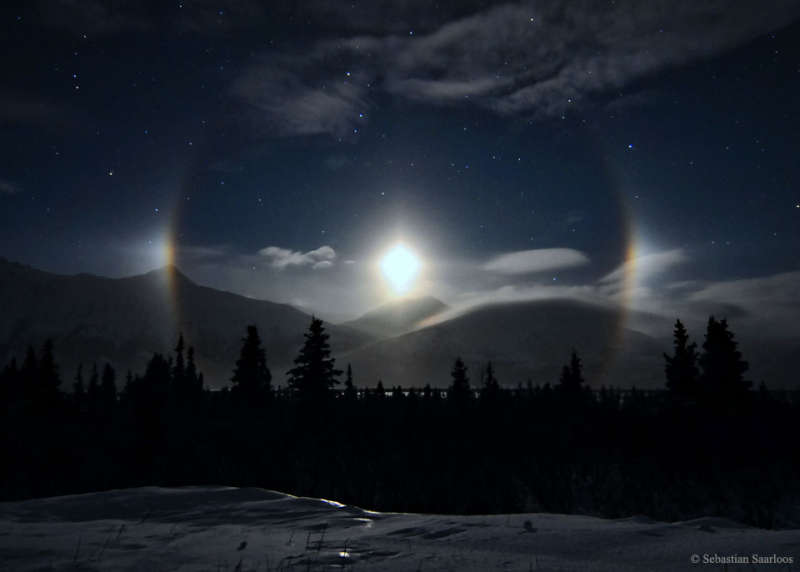Credit & Copyright: Sebastian Saarloos
Explanation:
What's happened to the sky?
Moonlight illuminates a snowy scene in
this
night land and skyscape made on 2013 January from
Lower Miller Creek,
Alaska,
USA.
Overexposed near the mountainous western horizon is
the first quarter Moon itself, surrounded by an
icy halo and flanked left and right
by moondogs.
Sometimes called mock moons, a more scientific name for the luminous apparitions
is paraselenae (plural).
Analogous to a sundog or parhelion,
a paraselene is produced by moonlight refracted through thin,
hexagonal, plate-shaped ice crystals in high
cirrus clouds.
As determined by
the
crystal geometry, paraselenae are seen
at an angle of 22 degrees or more from the Moon.
Compared to the bright lunar disk,
paraselenae are faint
and easier to spot when the Moon is low.
Follow APOD on:
Facebook,
Google Plus,
Instagram, or
Twitter
1999 2000 2001 2002 2003 2004 2005 2006 2007 2008 2009 2010 2011 2012 2013 2014 2015 2016 2017 2018 2019 2020 2021 2022 2023 2024 2025 2026 |
Yanvar' Fevral' Mart Aprel' Mai Iyun' Iyul' Avgust Sentyabr' Oktyabr' Noyabr' Dekabr' |
NASA Web Site Statements, Warnings, and Disclaimers
NASA Official: Jay Norris. Specific rights apply.
A service of: LHEA at NASA / GSFC
& Michigan Tech. U.
|
Publikacii s klyuchevymi slovami:
ice crystals - Luna - atmosfernye yavleniya
Publikacii so slovami: ice crystals - Luna - atmosfernye yavleniya | |
Sm. takzhe:
Vse publikacii na tu zhe temu >> | |
